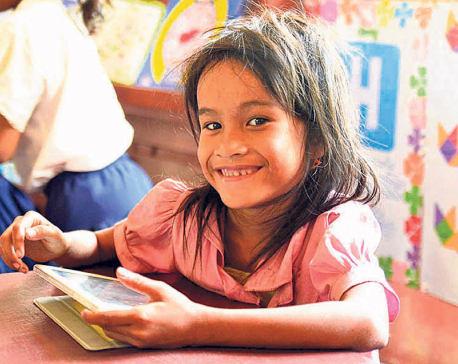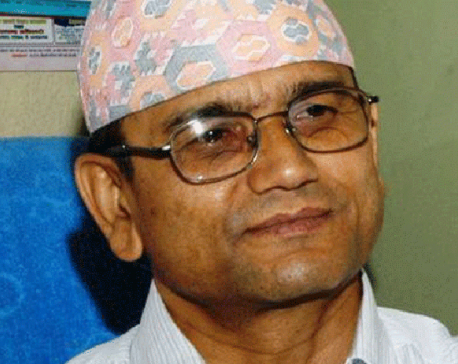
OR
Local level election
Thursday’s merger of six different Madhesi parties to form the Rastriya Janata Party (RJP), to be followed hot on the heels by an understanding between various Madhesi forces and the government on a two-phase election, have been music to the ears of Nepalis. For over a decade since the historic 2006 change, they have been more used to discordant cacophony resulting from the seemingly never-ending tug-of-war among their major political actors. The recent breakthrough offers hope that these raucous disputes over the new constitution could soon be resolved and that the country will well and truly go into election mode. According to the agreement, local election will be held in two phases, the first, on May 14, will cover provinces 3, 4 and 6; while the second phase, a month later on June 14, will cover provinces 1,2,5 and 7. Apparently, the Election Commission has given its nod to both the dates. Yet, given the unpredictable nature of Nepali politics, a lot can still go wrong, including the unraveling of Saturday’s agreement on two-phase election.
One way this could happen is if CPN-UML, the main opposition and the second biggest party in parliament, does not give its approval. During a one-on-one with Prime Minister Pushpa Kamal Dahal, UML chief KP Sharma Oli is reported to have asked the prime minister to produce a written agreement before UML makes its stand on the agreement clear. UML has every right to be skeptical of an agreement that has not been committed to paper. The only reason we can think of why there was no written agreement is lack of trust between the two sides. Perhaps the Madhesi forces want to see progress on amendment in line with their demands before they unreservedly commit to local election. If so, the government must not waste any more time in registering an amendment proposal to this effect in the parliament. We are confident that despite UML’s initial skepticism of Saturday’s agreement—which was apparently made without taking the party into confidence—it will not be a hurdle to timely and inclusive election. In fact, senior UML leaders have repeatedly said that they are open to two-phase election if there is a guarantee of the participation of Madhesi forces.
An as bigger risk is sudden change in the pro-election stand of Madhesi forces, mainly due to internal disagreements. In fact there continues to be lingering disagreements within the new RJP and between RJP and Upendra Yadav’s Federal Alliance on some points of the proposed constitutional amendment. If external actors, India chiefly, decide that some proposals are not in their interest, there could also be pressure on Nepali actors to defer election. Moreover, the 60-odd small parties that (rightly) want the Election Commission to give them distinct electoral symbols could pose another hurdle. But if there is a common stand among at least the three major political forces on local election, all such problems can be solved with relative ease. In any case, the three will need to be together to pass the kind of amendments the Madhesi parties want. We are confident that our democratic forces amply understand the importance of local election, which is being held after two decades, and what it means to people at the grassroots. It is with this message of hope that we would like to wish all our valued readers a very happy loktantra diwas.
You May Like This

Let's Read! Digital Library for All
A two-day book translation event for Let's Read! Digital Library by The Asia Foundation in Kathmandu initiated from Saturday. According... Read More...

Let’s be safe
Sexual health issues and problems have always been embarrassing to discuss but considering the general increase in the number of... Read More...

Let's institutionalize our issues thru elections: Gyawali
KATHMANDU, Oct 12: Leader of the CPN-UML, Yuvaraj Gyawali has said that his party is very serious for the constitution... Read More...





Just In
- CM Kandel requests Finance Minister Pun to put Karnali province in priority in upcoming budget
- Australia reduces TR visa age limit and duration as it implements stricter regulations for foreign students
- Govt aims to surpass Rs 10 trillion GDP mark in next five years
- Govt appoints 77 Liaison Officers for mountain climbing management for spring season
- EC decides to permit public vehicles to operate freely on day of by-election
- Fugitive arrested after 26 years
- Indian Potash Ltd secures contract to bring 30,000 tons of urea within 107 days
- CAN adds four players to squad for T20 series against West Indies 'A'













Leave A Comment